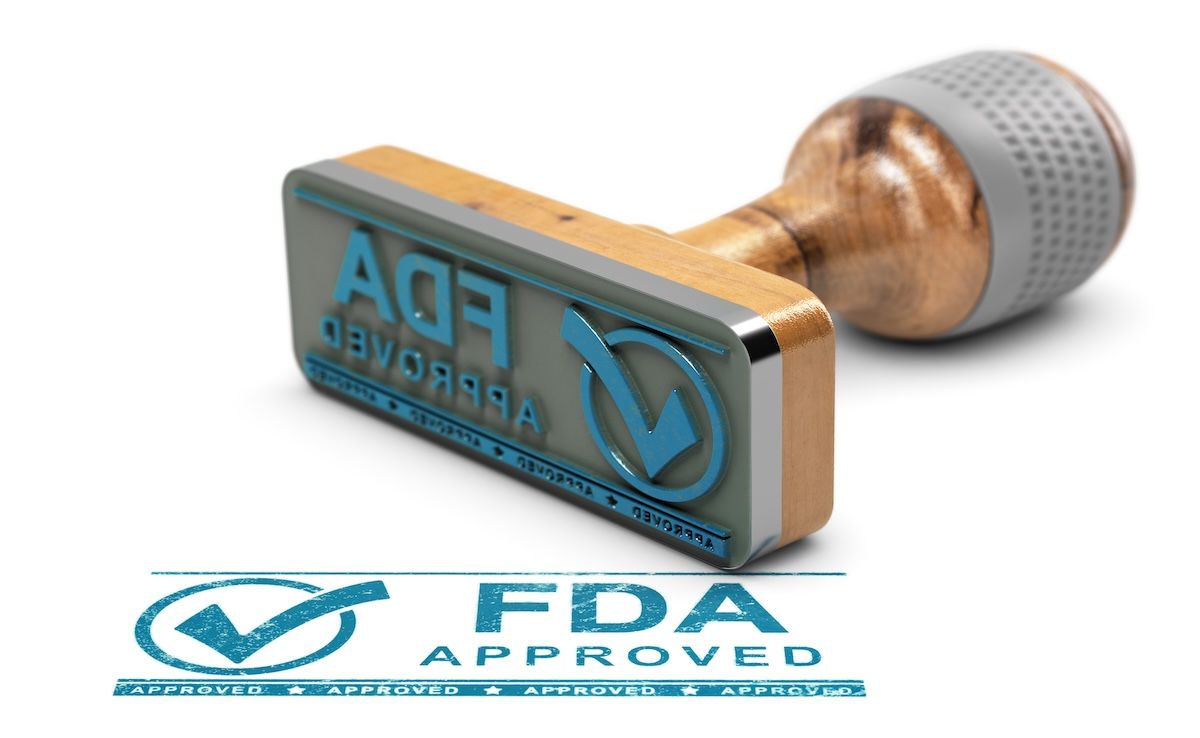- Center on Health Equity & Access
- Clinical
- Health Care Cost
- Health Care Delivery
- Insurance
- Policy
- Technology
- Value-Based Care
Tezepelumab Becomes First TSLP-Targeting Biologic Approved by FDA for CRSwNP
Tezepelumab (Tezspire) improves symptoms, reduces surgery needs, and lowers steroid use in patients with chronic rhinosinusitis with nasal polyps (CRSwNP).
The FDA approved tezepelumab-ekko (TEZSPIRE; AstraZeneca/Amgen) on Friday as an add-on maintenance treatment in patients aged 12 years and older with inadequately controlled chronic rhinosinusitis with nasal polyps (CRSwNP), making it the first biologic approved to target thymic stromal lymphopoietin (TSLP) for this condition.1
This marks the second indication for tezepelumab, which was previously approved to treat severe asthma.2 Friday’s approval was based on efficacy and safety data from the phase 3 WAYPOINT trial (NCT04851964), which were presented at the 2025 American Academy of Allergy, Asthma, & Immunology/World Allergy Organization Joint Congress and published simultaneously in The New England Journal of Medicine.3 The trial demonstrated a statistically significant and clinically meaningful reduction in nasal polyp severity, a near elimination of the need for surgery, and a significant reduction in systemic corticosteroid use compared with placebo.1
“Chronic rhinosinusitis with nasal polyps is a persistent and often-overlooked disease that can significantly impact daily life, robbing patients of their ability to breathe without congestion and a full sense of smell,” Kenneth Mendez, president and CEO of the Asthma & Allergy Foundation of America, said in a news release. “This approval introduces an innovative treatment option for patients with the potential to help address the ongoing cycle of debilitating symptoms, surgeries, and systemic steroid use.”
Tezepelumab (TEZSPIRE; AstraZeneca/Amgen) improves symptoms, reduces surgery needs, and lowers steroid use in patients with chronic rhinosinusitis with nasal polyps (CRSwNP). | Image Credit: Olivier Le Moal - stock.adobe.com

WAYPOINT Trial Design and Results
In the WAYPOINT trial, researchers assigned adults with CRSwNP in a randomized fashion to receive standard care plus either 210 mg of tezepelumab or placebo, administered subcutaneously every 4 weeks for 52 weeks.4 The coprimary end points were changes from baseline in the total nasal polyp score (range, 0-4) and mean nasal congestion score (range, 0-3), with higher scores indicating greater severity for both.
Key secondary end points included the loss-of-smell score (range, 0-40), total symptom score (range, 0-24), total Sinonasal Outcome Test (SNOT-22) score (range, 0-110), and Lund-Mackay score (range, 0-24). Like the primary end points, higher scores indicate greater severity. In time-to-event analyses, the researchers also assessed the time to the first decision to treat with nasal-polyp surgery, the use of systemic glucocorticoid therapy, or both.
A total of 203 patients were assigned to receive tezepelumab, and 205 were assigned to receive placebo. Compared with the placebo group, those who received tezepelumab experienced significant improvements in both the total nasal-polyp score (mean difference, –2.08; 95% CI, –2.40 to –1.76; P < .001) and the mean nasal-congestion score (mean difference, –1.04; 95% CI, –1.21 to –0.87; P < .001) at week 52.
For the secondary end points, tezepelumab significantly improved the loss-of-smell score (mean difference, –1.01; 95% CI, –1.18 to –0.83), SNOT-22 score (mean difference, –27.44; 95% CI, –32.51 to –22.37), Lund-Mackay score (mean difference, –5.70; 95% CI, –6.37 to –5.03), and total symptom score (mean difference, –6.96; 95% CI, –8.09 to –5.83; P < .001 for all) compared with placebo.
Additionally, significantly fewer patients in the tezepelumab group underwent nasal polyp surgery compared with the placebo group (0.5% vs 22.0%; HR, 0.02; 95% CI, 0.00-0.09; P < .001). Lastly, there was a significant reduction in systemic glucocorticoid use with tezepelumab compared with placebo (5.2% vs 19.3%; HR, 0.11; 95% CI, 0.04-0.25; P < .001).
“The FDA approval of TEZSPIRE brings forward a new treatment option that has demonstrated rapid and sustained symptom improvement, nearly eliminating the need for future surgeries and significantly reducing systemic steroid use,” Joseph Han, MD, co–primary investigator of the WAYPOINT trial, said in a news release.1 “By targeting TSLP at the top of the inflammatory cascade, TEZSPIRE offers a novel option for patients who continue to endure the disruption of this disease despite available treatments.”
References
- Tezspire approved in the US for chronic rhinosinusitis with nasal polyps. News release. AstraZeneca. October 17, 2025. Accessed October 20, 2025. https://www.astrazeneca-us.com/media/press-releases/2025/TEZSPIRE-approved-in-the-US-for-chronic-rhinosinusitis-with-nasal-polyps.html
- Inserro A. FDA approves tezepelumab for severe asthma. AJMC®. December 17, 2021. Accessed October 20, 2025. https://www.ajmc.com/view/fda-approves-tezepelumab-for-severe-asthma
- Efficacy and safety of tezepelumab in participants with severe chronic rhinosinusitis with nasal polyposis (WAYPOINT). ClinicalTrials.gov. Updated July 20, 2025. Accessed October 20, 2025. https://clinicaltrials.gov/study/NCT04851964
- Lipworth BJ, Han JK, Desrosiers M, et al. Tezepelumab in adults with severe chronic rhinosinusitis with nasal polyps. N Engl J Med. 2025;392(12):1178-1188. doi:10.1056/NEJMoa2414482
